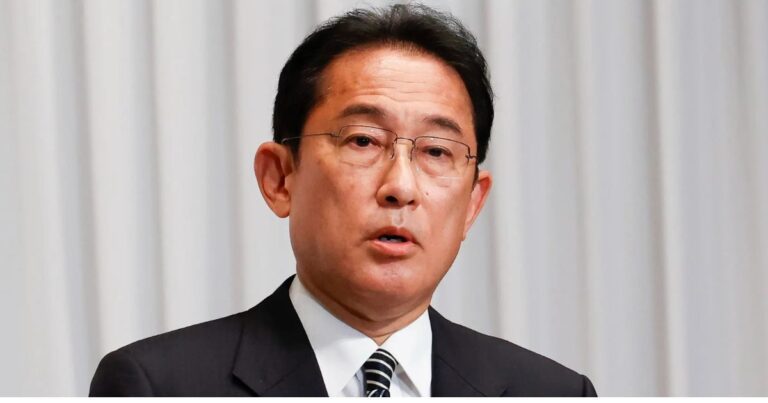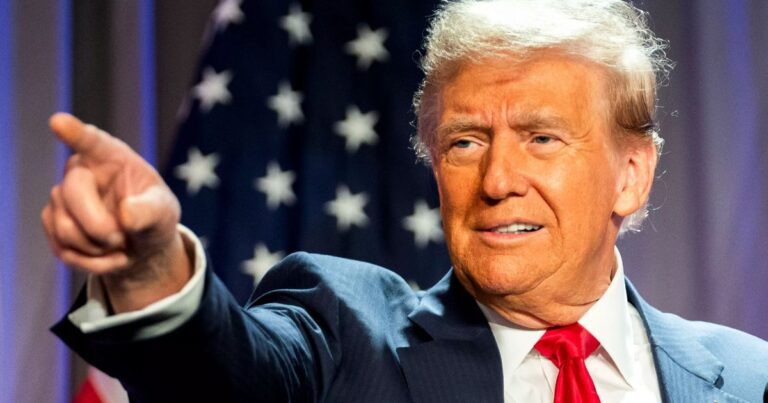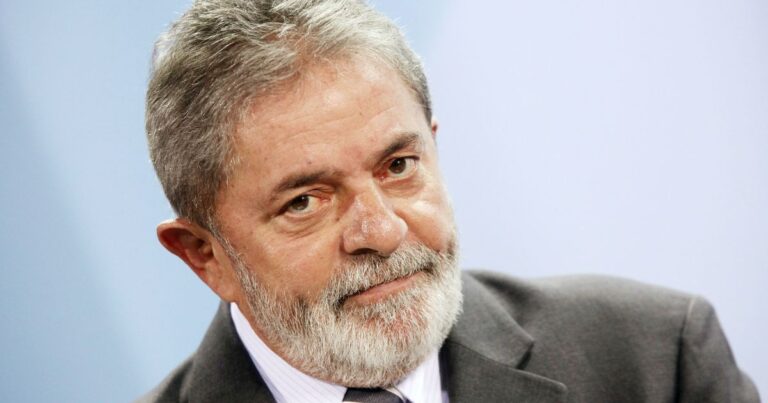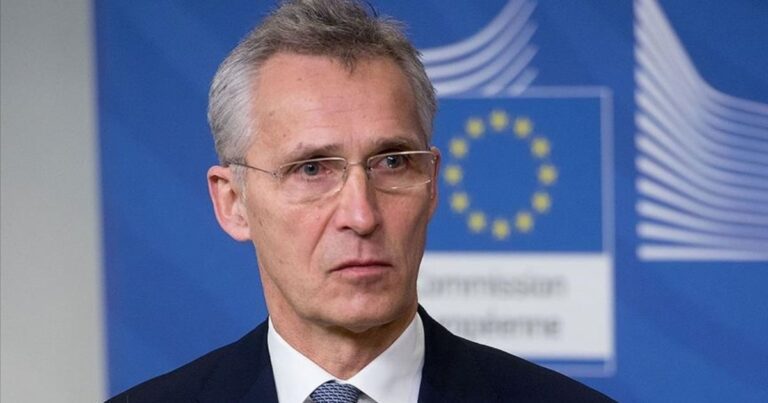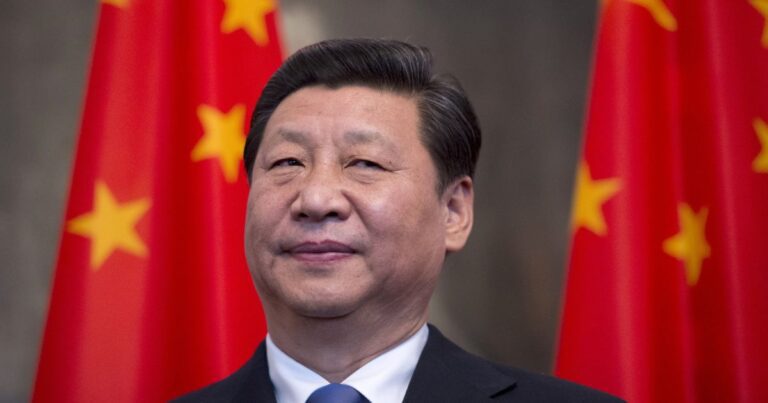Tedros Adhanom Ghebreyesus: Leading the WHO Through Global Health Crises

The Early Life and Education of Dr. Tedros Adhanom Ghebreyesus
Dr. Tedros Adhanom Ghebreyesus is one of the most recognized public health figures in the world, especially known for his role as Director-General of the World Health Organization (WHO). But long before he took the global stage, he had a story rooted in resilience, education, and a commitment to public health in one of Africa’s most historic nations — Ethiopia.
👶 Early Life in Asmara (1965–1980s)
Tedros was born in 1965 in Asmara, a city that was then part of Ethiopia (now the capital of Eritrea). Growing up in a region marked by poverty, conflict, and limited access to healthcare, Tedros witnessed firsthand the consequences of weak health systems.
🌿 A Personal Loss That Shaped His Future
One of the most formative moments in his life was the death of his younger brother, who succumbed to a disease that could have been easily prevented or treated with proper healthcare. This loss instilled in Tedros a lifelong dedication to improving public health systems, especially in underprivileged communities.
📝 What This Taught Him:
- The importance of accessible healthcare.
- How inequality leads to unnecessary suffering.
- That public health is a human right.
🎓 Academic Journey: From Ethiopia to the UK
Education became Tedros’s tool for transformation—not just of his life, but also his country’s health system.
📍 1. Bachelor’s in Biology – University of Asmara
- Completed undergraduate studies in biology.
- Gained foundational knowledge in science and research.
- Developed a strong interest in infectious diseases.
📍 2. Master’s in Immunology of Infectious Diseases – University of London (1992)
- Studied at the London School of Hygiene & Tropical Medicine.
- Specialized in immunology, a critical field for understanding diseases like malaria and HIV/AIDS.
- Gained exposure to international health policy and epidemiology.
📍 3. PhD in Community Health – University of Nottingham (2000)
- Dissertation focused on malaria prevention and control.
- Conducted field research in Ethiopia.
- Cemented his reputation as a respected scientist and researcher.
📚 Key Takeaways from His Education:
- A scientific mindset combined with field experience.
- Skills in research methodology, policy-making, and public health leadership.
- A global network that would later support his rise in international health circles.
🌍 Tedros’s Core Beliefs from the Beginning
From the very start, Tedros held firm beliefs that would guide his future leadership roles:
✅ Health is not a luxury — it’s a right.
✅ Diseases don’t respect borders — global cooperation is essential.
✅ Prevention is as crucial as treatment — invest in community health.
✅ Equity must be at the heart of all health policy — no one left behind.
Transforming Ethiopia’s Health System – Tedros’s National Impact 🇪🇹
Before stepping into the global spotlight, Dr. Tedros Adhanom Ghebreyesus led one of the most ambitious public health overhauls in Africa. His work in Ethiopia’s health sector not only saved lives, but also caught the attention of the global health community.
🧭 Joining the Ministry of Health (2001–2005)
After completing his PhD, Tedros returned to Ethiopia with a mission — to modernize the health system and bring equity to healthcare access across urban and rural populations.
🔹 Roles and Responsibilities:
- Head of the Tigray Regional Health Bureau
- Later promoted to senior positions in the Federal Ministry of Health
💡 Tedros was praised for his data-driven decisions, community health focus, and collaborative leadership.
🏗️ The Health Extension Program (HEP) – A Game-Changer
When Tedros became Ethiopia’s Minister of Health in 2005, he launched the Health Extension Program, a groundbreaking initiative aimed at reaching every village with primary healthcare.
🩺 Key Features of HEP:
- Deployment of 38,000+ Health Extension Workers
🚺 Most were women recruited from local communities — trained and equipped to offer basic healthcare services. - Focus Areas:
- Maternal and child health 👶
- Family planning ❤️
- Immunization 💉
- Sanitation and hygiene 🚽
- Disease prevention (especially malaria and HIV/AIDS) 🦟
- Community Engagement
📣 The program emphasized local ownership, peer education, and public trust.
🌱 Results of HEP:
- 📉 Infant and child mortality dropped significantly
- 🚼 Immunization coverage increased
- 🏡 Healthcare became available even in remote villages
- 📊 Data tracking and performance metrics improved drastically
💪 Rebuilding Trust in Public Health
Before Tedros’s reforms, many Ethiopians distrusted the public health system. Under his leadership:
- Health centers were upgraded 🏥
- Medical supply chains became more efficient 💊
- Community trust was rebuilt through consistent results 🤝
He turned the Ethiopian Ministry of Health into a model for developing nations, showing that smart investments and leadership can drive massive change—even with limited resources.
🌍 From Minister of Health to Minister of Foreign Affairs (2012–2016)
In 2012, his success in the health sector led to his appointment as Ethiopia’s Minister of Foreign Affairs. Though seemingly a shift, it aligned with his core mission: advocating for health equity on a global scale.
🌐 In This Role, He:
- Championed global health diplomacy
- Advocated for South-South cooperation
- Helped secure foreign aid and partnerships for health and development
This made him one of the first leaders to integrate public health into foreign policy, preparing him for a future at the World Health Organization.
📝 Recognition & Awards During This Period
During and after his time in Ethiopia’s health ministry, Tedros received global recognition:
🏅 Jimmy and Rosalynn Carter Humanitarian Award
🏅 Recipient of numerous honors from African health organizations
🏅 Praised by the WHO and other UN agencies
Making History – Tedros’s Election as WHO Director-General 🗳️
Dr. Tedros’s journey to the World Health Organization was not only a career milestone—it was a historic event for global health governance. In 2017, he became the first African and the first non-medical doctor to lead the WHO.
🚀 The Campaign That Changed Everything
When Dr. Tedros announced his candidacy for WHO Director-General, many were intrigued. He was not a medical doctor, but his deep public health background, leadership in Ethiopia, and global diplomacy made him a strong contender.
🎯 His Campaign Focused On:
- Universal Health Coverage (UHC) – health for all 💊
- Health Emergencies – faster, more coordinated responses 🆘
- Women, Children, and Adolescent Health 👩🍼
- Strengthening Health Systems in Developing Countries 🌱
- A Transparent and Accountable WHO 🔍
🤝 Backing and Support:
- Over 50 countries supported his candidacy
- Endorsed by the African Union
- Strong backing from developing nations and global south leaders 🌎
🗣️ “Together, we can build a healthier, more equitable world.” – Tedros’s key message resonated across borders.
🗳️ The WHO Election Process – How It Works
The WHO Director-General election is held by the World Health Assembly, which includes health ministers from 194 member states.
🏁 Steps of the Election:
- Nomination of candidates
- Presentation and interviews
- Secret ballot voting by member countries
In May 2017, after three rounds of voting…
🎉 Dr. Tedros was elected with a strong majority, defeating UK’s Dr. David Nabarro and Pakistan’s Dr. Sania Nishtar.
🌍 A Historic First: Breaking Barriers at WHO
🎊 Dr. Tedros made history:
- 🌍 First African Director-General of WHO
- 🧪 First non-physician to hold the role
- 🗳️ First election with voting by all member states, making it the most democratic process yet
This election symbolized a shift in global health leadership, emphasizing inclusive, equitable, and diverse representation.
🧭 The Vision: What Tedros Promised as WHO DG
Upon taking office in July 2017, Dr. Tedros outlined a clear, ambitious agenda for WHO. He introduced a Five-Point Transformation Plan, including:
🔹 1. Universal Health Coverage (UHC)
- Focused on primary healthcare
- Promoted access to essential medicines and vaccines
🔹 2. Health Emergencies
- Aimed to strengthen preparedness and response
- Promised a faster emergency response model
🔹 3. Women’s, Children’s, and Adolescents’ Health
- Prioritized vulnerable groups
- Advocated for gender equity and rights-based approaches 👩⚖️
🔹 4. Climate and Environmental Health
- Addressed pollution, climate change, and urban health risks
🔹 5. WHO Reform
- Enhanced transparency, accountability, and leadership culture
💡 Tedros emphasized, “Health is a human right, not a privilege.” This became the core message of his leadership.
🧬 Major Structural Reforms
Once in office, Dr. Tedros initiated the largest WHO transformation in decades:
🏛️ Organizational Reforms:
- Created a Science Division to focus on evidence-based policies
- Established a new Emergency Preparedness Division
- Launched WHO Academy – a global learning hub for public health education 🎓
- Decentralized decision-making to empower regional offices 🌍
📊 The reforms made WHO more agile, more responsive, and better aligned with 21st-century health threats.
The COVID-19 Pandemic – Tedros’s Defining Test 🌍
The COVID-19 pandemic was not just a public health crisis—it was a global leadership test. For Dr. Tedros, it became the biggest challenge of his career and the most critical era in WHO’s modern history.
🚨 Early Days of the Pandemic
In late December 2019, China reported cases of a mysterious pneumonia in Wuhan. WHO, under Tedros’s leadership, began monitoring the situation closely.
🧪 Initial Actions by WHO:
- January 1, 2020 – WHO sets up an Incident Management Team
- January 5 – Public statement released on “pneumonia of unknown cause”
- January 30 – Declared COVID-19 a Public Health Emergency of International Concern (PHEIC)
- March 11 – WHO declared COVID-19 a pandemic 🦠🌍
💬 “We are deeply concerned by the alarming levels of spread and severity, and by the alarming levels of inaction.” — Tedros, March 2020
🧭 Leading Through Crisis: Tedros in the Spotlight
Dr. Tedros became the face of the global response, holding regular press briefings and urging world unity.
🎯 His Key Messages:
- “Test, test, test” – to detect and isolate early
- “Solidarity is the only option” – emphasizing global cooperation
- “No one is safe until everyone is safe” – pointing to global vaccine equity 💉
🛡️ WHO’s Actions Under His Watch:
- Developed global guidelines and protocols
- Delivered millions of test kits and PPE to low-income nations
- Launched the Solidarity Trial for treatments
- Advocated for travel precautions, not bans
🌍 COVAX & Global Vaccine Equity
In partnership with Gavi, CEPI, and UNICEF, WHO launched COVAX—a global initiative to ensure equitable access to COVID-19 vaccines, especially for low- and middle-income countries.
💉 COVAX Achievements:
- Distributed over 1 billion vaccine doses worldwide
- Helped over 100 countries gain access to vaccines
- Fought against “vaccine nationalism” ❌
💬 Tedros’s passionate plea: “The world is on the brink of a catastrophic moral failure if vaccines are not distributed fairly.”
🔥 Controversies and Criticisms
Despite his leadership, Tedros faced intense global scrutiny, especially during the early months.
😡 Key Criticisms:
- Too Soft on China?
Critics, especially from the U.S., claimed WHO was slow to challenge China on transparency. - Delayed Pandemic Declaration
Some believed the March declaration came too late. - Handling of Misinformation
WHO struggled to contain the spread of fake news online during early phases. - Political Tensions
- U.S. President Donald Trump cut funding and withdrew from WHO in 2020
- This action shocked the global community, leading to widespread support for Tedros
🤝 Global Support and Solidarity
Despite political tensions, Tedros remained widely respected in the global health community.
🌍 Who Supported Him?
- UN Secretary-General António Guterres backed him publicly
- Leaders from Europe, Africa, and Asia praised his calm, science-driven approach
- Over 700 scientists signed an open letter supporting WHO’s leadership
🎗️ His leadership style—empathetic, data-driven, and collaborative—earned him a loyal following across the UN system.
🏥 Key Health Messages During the Pandemic
Tedros frequently appeared in press briefings, delivering crucial messages with clarity and urgency.
🔑 Common Themes:
- Emphasis on testing and tracing
- Importance of mental health during lockdowns
- Encouraging global mask usage and hygiene
- Reinforcing the value of vaccination and boosters
- Condemning inequity and vaccine hoarding
🧘♂️ Personal Poise Under Pressure
Throughout the pandemic, Tedros maintained a calm and composed demeanor, even amid political storms.
🗣️ Memorable Quotes:
- “The virus exploits divisions. Let’s not give it that opportunity.”
- “This is the time for facts, not fear. Science, not rumors.”
- “Let’s be kind to one another. We’re all in this together.”
🌟 His human-first approach, often emotional and deeply empathetic, made him a symbol of resilience and global health unity.
Legacy, Re-Election & The Future of Global Health 🌐🩺
Dr. Tedros Adhanom Ghebreyesus’s journey from a war-torn region in Ethiopia to becoming the global face of health leadership is a tale of resilience, transformation, and unwavering commitment.
Let’s explore what his legacy means, the impact of his second term, and how he’s shaping the future of the World Health Organization (WHO).
🗳️ Re-Election as WHO Director-General
In May 2022, despite facing global controversies during the pandemic, Tedros was re-elected as Director-General of WHO for a second 5-year term (2022–2027).
🗂️ Key Facts:
- ✅ Ran unopposed – a rare occurrence
- 🌍 Backed strongly by African and European nations
- 🗣️ Promised to reform WHO’s emergency response systems
- 🔁 Pledged to ensure pandemic preparedness and equity
💬 “Health is not a cost. It’s an investment. And it’s the foundation of productive, resilient, and stable economies.” — Tedros, re-election speech
🧭 Strategic Priorities in His Second Term
During his second term, Dr. Tedros focused on rebuilding trust, enhancing transparency, and making WHO stronger and faster in responding to crises.
📌 His Top 6 Priorities:
- 🦠 Pandemic preparedness and response reform
- 🌱 Climate change and health
- 🧠 Mental health integration into primary care
- 🏥 Universal Health Coverage (UHC) for all
- 💉 Vaccine and pharmaceutical equity
- 🧬 Tackling noncommunicable diseases (NCDs)
🔄 Lessons from the Pandemic
Tedros often emphasizes that the pandemic exposed weaknesses in global health systems—but also taught powerful lessons.
📚 Key Takeaways He Shared:
- 💡 Global coordination is non-negotiable in emergencies
- 🧪 Invest in early warning systems and R&D
- 🤝 Strong community trust is essential
- 💬 Public health messaging must be clear and science-based
- 🧬 Next pandemic is not a question of “if,” but “when”
🌍 Championing Global Health Equity
Tedros remains one of the most vocal advocates for health equity—ensuring every person, everywhere, has access to quality healthcare.
📣 His Bold Advocacy:
- Called for waivers on vaccine patents to expand production
- Urged rich nations to share surplus vaccines and treatments
- Advocated for technology transfer to Africa
- Continues to stress the moral responsibility of global health fairness
💬 “Health equity should not be a dream. It should be a right.” — Tedros
🧑🏫 Leadership Style & Personal Traits
Dr. Tedros is known not just for policies, but for his inclusive and compassionate leadership.
💼 What Makes His Style Unique:
- Empathetic and emotionally intelligent
- Emphasizes collaboration over confrontation
- Speaks in a way that connects with people, not just professionals
- Remains visible and accessible, even during crises
He often shares personal stories, reflects on his roots, and brings a human face to WHO’s work.
🕊️ Controversies Revisited: Balanced Perspectives
While he remains widely respected, Tedros’s tenure is not without criticisms and debates.
⚖️ Balanced View:
| Controversy | Supporters Say | Critics Say |
|---|---|---|
| China handling | Diplomatic balance in early chaos | Too soft, delayed response |
| U.S. withdrawal | Stayed calm, focused on mission | Should have been more assertive |
| COVID messaging | Improved over time, science-based | Initially confusing for public |
| Vaccine equity | Bold global voice | Could have acted faster |
Still, most global health experts agree: Tedros has shown exceptional grace under pressure.
🏆 Recognition & Awards
Dr. Tedros has received numerous awards and honors, including:
- 🏅 Time Magazine’s 100 Most Influential People
- 🕊️ Nelson Mandela Prize for Health Equity
- 🎓 Honorary degrees from universities across Europe and Africa
- 👨⚕️ African Union Champion of Health
He remains a symbol of African leadership in global governance, often celebrated for breaking barriers.
🌟 Looking Ahead: The Future of WHO and Tedros
As the world faces future threats—pandemics, climate change, AI in health, mental health crises—Tedros is positioning WHO to lead with innovation and inclusion.
🔮 What He Envisions:
- 🌍 A stronger WHO with more funding and independence
- 📊 Data-driven global health surveillance systems
- 🌡️ Integration of climate action into health policy
- 👨👩👧👦 People-first health systems
- 🤝 Global cooperation over nationalism
💬 “The world needs WHO now more than ever. Our collective future depends on strong global health systems.”
🏁 Final Thoughts
Dr. Tedros Adhanom Ghebreyesus is more than just the Director-General of WHO—he is a global symbol of health equity, resilience, and compassionate leadership. From his early struggles in Ethiopia to leading the world during a historic pandemic, his journey inspires millions.
In an age where global health faces unprecedented threats, Tedros stands as a beacon of hope, science, and solidarity.
🕊️💉🩺🌍
🌐 Trusted External Sources on Dr. Tedros Adhanom Ghebreyesus
For readers seeking verified and in-depth information about Dr. Tedros’s career, leadership, and global health contributions, here are some authoritative sources:
- World Health Organization – Director-General Profile
https://www.who.int/director-general
➤ The official WHO page with his biography, speeches, and initiatives. - United Nations Official Website – Health & Development
https://www.un.org/en/global-issues/health
➤ Covers Dr. Tedros’s contributions to global health through the UN framework. - The Lancet – Scientific & Medical Coverage on Global Health Leadership
https://www.thelancet.com
➤ Peer-reviewed articles featuring Dr. Tedros’s influence on global health. - Time Magazine – 100 Most Influential People Archive
https://time.com/collection/100-most-influential-people
➤ Recognition of Dr. Tedros’s role during global health crises. - BBC News – Profile and WHO Coverage
https://www.bbc.com/news
➤ Reports on key moments during Dr. Tedros’s tenure at WHO. - Reuters – WHO Policy and Leadership Developments
https://www.reuters.com
➤ Trusted global news source reporting on WHO and Dr. Tedros’s decisions. - Nature Journal – Commentary on WHO’s Pandemic Strategy
https://www.nature.com
➤ Insightful analyses of WHO’s pandemic response strategies under his leadership. - African Union – Public Health & Regional Impact
https://au.int/en/health
➤ Details on Dr. Tedros’s earlier work with the AU and Ethiopia’s health policies.

